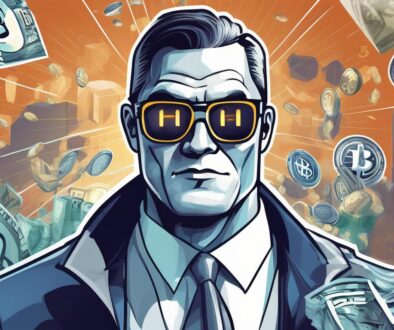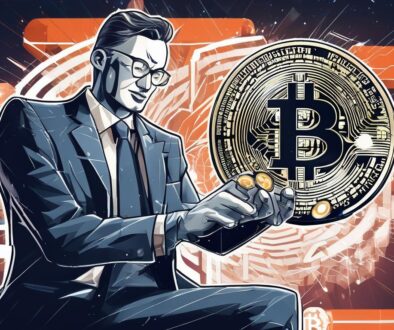Debates Surrounding OpenSea’s SEA Token Airdrop Criteria

The Buzz Around OpenSea’s SEA Token
The crypto community is buzzing, and a significant part of the conversation revolves around OpenSea, the leading NFT marketplace, and its highly anticipated SEA token. Nearly three months after OpenSea first hinted at the token alongside its OS2 beta launch, discussions about the airdrop mechanics have resurfaced with vigor. Investors, creators, and everyday users are keenly deliberating the criteria the platform should use to distribute these long-awaited SEA tokens, with many seeking clear answers from OpenSea’s leadership. The marketplace’s recent climb to the second position on Kaito’s Mindshare rankings has only amplified the anticipation for an official update.
OS2: A New OpenSea and the XP Reward Experiment
OpenSea’s journey towards launching the SEA token included the introduction of OS2, touted as a “new OpenSea.” This platform iteration, confirmed by the OpenSea Foundation, was built with a fresh approach and notably featured an experience points (XP) system. The primary goal of this XP system was to reward both past and current users based on their activity on the platform. These accumulated XPs were intended to be a key factor in qualifying users for the SEA token airdrop, serving as a mechanism to recognize contributions and engagement.
Why the XP System Was Paused
However, the XP system didn’t receive the warm welcome OpenSea might have hoped for. Shortly after its implementation, it faced considerable criticism from the user community. Some of the main concerns raised were:
- Not Conducive to Builders: Many felt the system didn’t adequately reward individuals and teams actively building projects and fostering communities on OpenSea.
- Promotion of Wash Trading: There were anxieties that the XP system could incentivize artificial trading activity, where users might engage in wash trading solely to accumulate points and game the system.
- Overemphasis on Fees: Critics argued that the system disproportionately prioritized activities that generated fees for the platform, rather than genuine, organic engagement.
In response to this significant negative feedback, OpenSea decided to discontinue the XP reward system for listings and airdrop qualifications. This move signaled a willingness to listen to its community and a need to re-evaluate its approach to user rewards and airdrop criteria.
The Great Airdrop Debate: Who Gets SEA Tokens?
With the XP system now on hold, the pivotal question remains: how should OpenSea determine who is eligible for the SEA token airdrop? The debate within the community largely centers on two differing philosophies:
- Rewarding Historical Users: A significant portion of the community, particularly long-term users, believes that individuals who supported OpenSea in its nascent stages and contributed substantially through past trading fees should be given preference. This viewpoint champions loyalty and acknowledges the contributions of early adopters who helped build the platform’s success.
- Prioritizing Newer Engagement Metrics: Conversely, others argue that the airdrop should be structured to incentivize current and future activity on the platform. While the initial XP system had its flaws, the underlying principle of rewarding active engagement on OS2 or through other new features still holds appeal for some. This could involve metrics that go beyond simple trading volume to reflect genuine participation and contribution to the ecosystem.
OpenSea has indicated that the SEA token is intended to reward both past and current users based on their platform activity. The challenge lies in striking a balance that the community views as equitable and that effectively promotes a vibrant and healthy platform, especially as OpenSea considers expanding its marketplace to include other crypto assets like memecoins.
Regulatory Clarity: A Green Light for SEA?
Adding a potentially positive dimension to the SEA token narrative is a recent regulatory development. The U.S. Securities and Exchange Commission (SEC) recently concluded its investigation into OpenSea without recommending any enforcement action. This news has been welcomed by many in the community, as it may remove a significant regulatory obstacle, potentially paving the way for a smoother launch of the SEA token without the shadow of immediate legal challenges.
What’s Next? The Community Awaits Clarity
As these discussions and debates continue, a consistent theme emerging from the OpenSea community is the call for greater transparency. Users are actively seeking clear and direct communication from OpenSea’s leadership regarding the definitive structure of the airdrop and the specific criteria that will ultimately be employed. Understanding the ‘who, what, when, and how’ of the SEA token distribution is paramount for maintaining user trust and sustaining the current level of excitement. Given OpenSea’s prominent position in the NFT space and the community’s deep investment in its future, timely and unambiguous updates are more critical than ever.
Navigating the Future of NFT Rewards
The forthcoming OpenSea SEA token airdrop represents more than just a simple distribution of tokens; it’s a landmark event for the leading NFT marketplace. The ongoing debates surrounding its criteria underscore the inherent complexities of designing reward systems for a diverse and dynamic user base in the ever-evolving crypto landscape. Whether OpenSea ultimately decides to favor historical contributions, current engagement levels, or a sophisticated hybrid model, the cornerstones of a successful launch will undoubtedly be fairness, transparency, and a well-articulated strategy that aligns with the long-term vitality of the platform and its dedicated community. The crypto world now watches keenly for OpenSea’s next move in the unfolding story of the SEA token.


